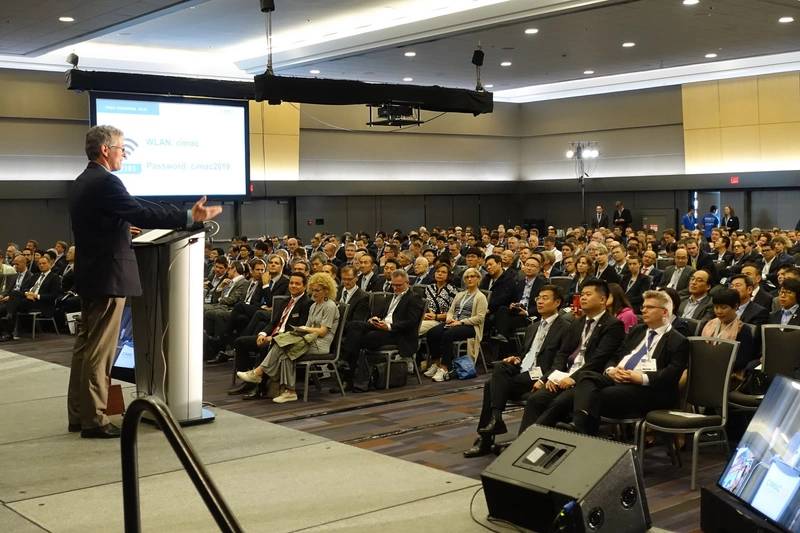Technical
Propulsion
CIMAC World Congress: The Place Where the Large Engine Industry Meets
By Christoph Rofka
Every three years, the large engine industry meets for the CIMAC World Congress. Next year, after Helsinki in 2016 and Vancouver in 2019, Busan in South Korea will host the CIMAC Congress from June 13 -17, 2022. Shipbuilding is dominated by Asia with South Korea as key player for decades. So, there is good reason for the Congress to meet there.
But, to first address the question that is currently being asked the most: Against the background of the pandemic, will the congress really take place? No one can know for sure, and there is certainly no guarantee. But we observe reassuring developments in many countries of the world. With vaccination progressing, the pandemic is being brought under control. Our plans continue to run at full speed, since we are convinced that people need to meet with others. We are ready for Korea and the Congress. So, hopefully, next year in Busan, experts from all over the world will meet, gather topical information, follow keynotes and panel discussions from distinguished industry experts, discuss with each other and search for ever better solutions. Of course, there will be an exhibition floor again, and also some new formats such as the pitch stage. Social events and technical tours will further boost the excellent networking possibilities in Busan.
In fact, next year our Congress will be held for the 30th time already. That is an impressive success story, as well as the consistent number of participants. More than 800 experts from all parts of the world came to Vancouver in 2019. We are confident we will welcome a similarly high number of participants in Busan. We have received more than 500 abstract proposals following our call for papers, competing for nearly 280 presentations at the CIMAC #Congress in 2022. Thus, the interest is very high, and for many in the large engines industry, participation in the CIMAC Congress is a must.

The thematic focus that awaits participants at the upcoming Congress is diverse. As in previous years, our aim is to cover almost all the challenges the large engine industry is facing. These include novel solutions and new developments as well as the continuous optimization and detailed improvement of existing systems. Hot topics such as digitization and system integration, to name two other important areas, must of course not be missed, as they require collaboration on a broader level. The four main categories in the Congress program this time are "Intelligent Energy Systems", "Proven Technologies”, "Towards Zero Emissions" and "Basic Research". This outlines the scope. The topic of climate protection will play a prominent role. We all know that unfortunately, the energy transition is globally lagging behind from the goals of the Paris Climate Agreement, and this also applies to shipping. This is even more serious as the industry accounts for around 2.5 percent of global CO2 emissions and, at the same time, transport volumes at sea are expected to continue to increase. The industry is called upon to act and take concrete measures to reduce CO2 emissions. To do this, we must continue to broaden our knowledge, constantly exchange ideas along the value chain and identify the best possible ways to achieve our goals. A multitude of factors and measures must be linked together.
Direct electrification, which is a possibility for mobility on land, will only work to a limited extent for shipping, for example in coastal applications. The combustion engine will continue to play a central role for deep sea shipping. However, concepts and ideas on how to replace fossil fuels with CO2-neutral alternatives must be put into practice, and this must happen quickly. LNG is already being used more widely, and more novel projects with hydrogen, ammonia or methanol as alternatives are emerging in the market. These are important steps, and others must follow quickly. The future most probably lies in chemical energy sources. If the energy carriers used are produced with green hydrogen, the ships will run CO2-neutral or even CO2-free. It remains to be seen which of the various technologies will ultimately prevail. The CIMAC congress is the perfect place for discussion of such and many other issues in detail. For me, it is a must to attend.
About the Author:
Christoph Rofka
Rofka is CIMAC Vice President Communication and Senior Vice President – Head of Global Product Group Medium, Low Speed and Rail, ABB Turbocharging.